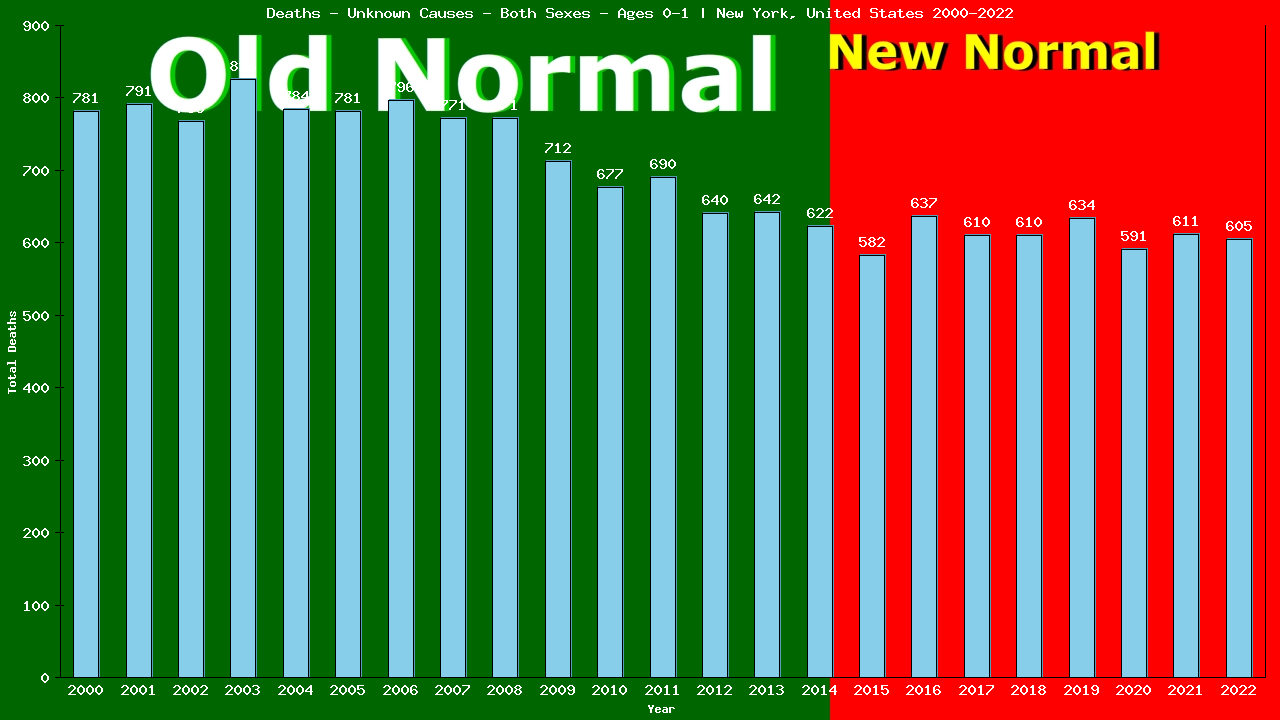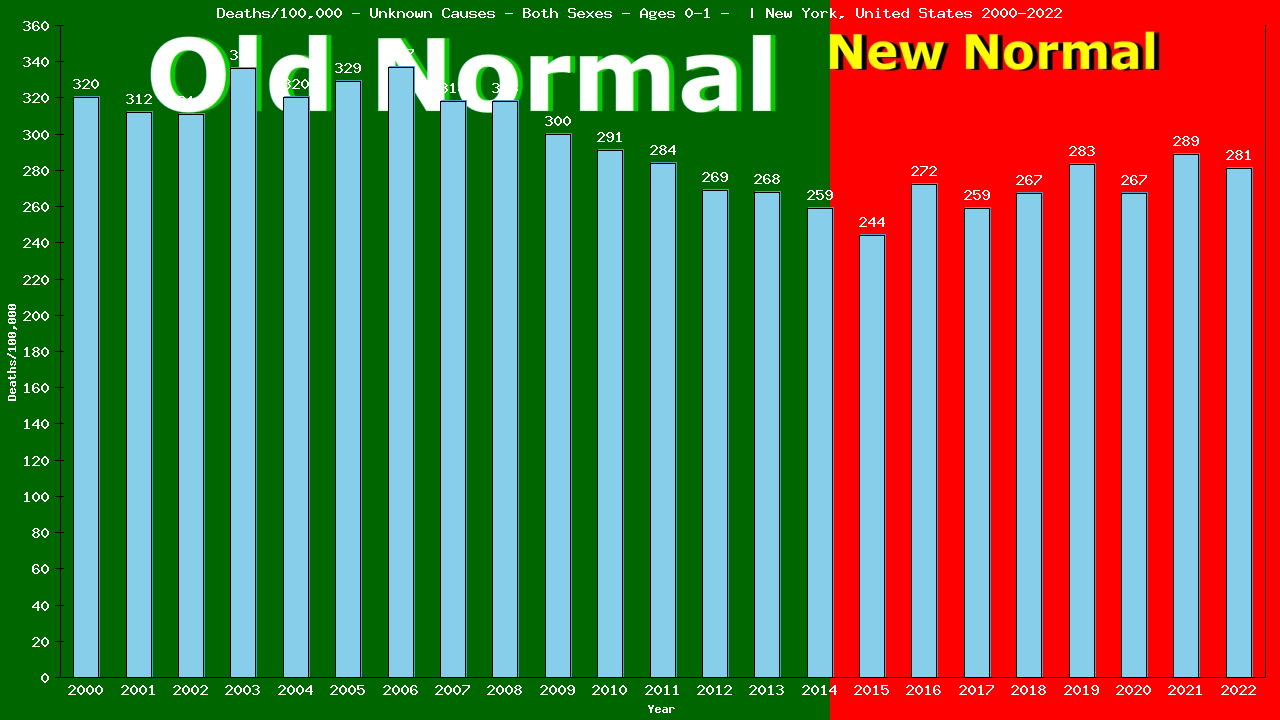Lives Saved
Quick Links
- There were a total of 173,938 deaths in New York in 2022
- 884 of all deaths were among those in their first year of life
- 31,047 of all deaths were from Unknown Causes
- 605 deaths from Unknown Causes were among those in their first year of life
605 deaths from Unknown Causes were among babies in their first year of life
2022 vs New Normal™ for babies in their first year of life in New York
- 605 of 884 total deaths were from Unknown Causes
- 68.44% of all deaths were from Unknown Causes
- This is down 8% compared to Old Normal rates.
- 656 of 1,224 total deaths would have been expected under Old Normal conditions.
- 51 fewer than expected deaths from Unknown Causes in 2022.
- 340 fewer than expected All Cause deaths in 2022.
- 637 fewer than expected deaths from Unknown Causes (2015-2022)
- 2,571 fewer than expected All Cause deaths over the first 8 years of New York’s New Normal™.
- To show this year’s deaths from Unknown Causes are down 8% compared to Old Normal rates, we need to calculate the rates for both 2022 and for the Old Normal.
Remember, death rates are calculated to answer these questions:
- “How many babies in their first year of life were there?” and
- “How many of them died from Unknown Causes?”
The following 2 charts provide this information:
Deaths – Unknown Causes – Both Sexes – In Their First Year Of Life | New York, United-states

Population – Both Sexes – In Their First Year Of Life – [2000-2022] | New York, United-states
![Graph showing Population - Both Sexes - In Their First Year Of Life - [2000-2022] | New York, United-states](/wp-content/plugins/dfuc-display/charts/united-states/new-york/2022/all/Both Sexes/0-1-pop.png)
From the charts, we can see that in 2022, 605 of 214,746 babies in their first year of life living in New York died from Unknown Causes.
605 ÷ 214,746 = 0.00282 (2022 CDR)
Deaths/100,000 Both Sexes 0-1 from Unknown Causes

The table shows there were a total of 11,052 deaths from Unknown Causes among 3,617,044 babies in their first year of life living in New York in the 15 years immediately prior to the New Normal™.
11,052 ÷ 3,617,044 = 0.00306 (Old Normal CDR)
We can use the Old Normal rate to predict this year’s deaths:
2022 pop X Old Normal CDR = expected deaths
214,746 X 0.00306 = 656 expected deaths
The difference between actual and expected deaths shows lives saved or lost:
605 – 656 = -51
Dividing the actual deaths by the expected deaths gives us the comparative rates:
605 ÷ 656 = 0.9190
This reveals 51 lives saved and is 91.90% of what we expected (a decrease of 8%) in deaths from Unknown Causes among babies in their first year of life living in New York in 2022, as compared to the Old Normal.
This is the same method used by Public Health to calculate the 5-yr CDR (Cumulative Death Rate):
4,275 ÷ 1,590,681 = 0.00269 (5-yr CDR)
214,746(2022 pop) X 0.00269 = 577 expected deaths
The difference between actual and expected deaths:
605 – 577 = 28 or 28 lives lost
Divide actual deaths by expected deaths:
605 ÷ 577 = 1.0444 or an increase of 4%
for deaths from Unknown Causes among babies in their first year of life living in New York in 2022, as compared to the previous 5 years.
Compare our Old Normal to the 5yr CDR. Does it tell the same story your TV does?
Finally, the same method can also be used to compare our Old Normal rate to the New Normal™ rate:
New Normal™ population X Old Normal rate = expected deaths
1,805,427 X 0.00306 = 5,517 expected deaths
The difference between actual and expected deaths:
4880 – 5,517 = -637 or 637 lives saved
Dividing the actual deaths by the expected deaths:
4,880 ÷ 5,517 = 0.8817 or a decrease of 12%
in deaths from Unknown Causes among babies in their first year of life living in New York in the New Normal™, as compared to the Old Normal.
The world has been led to believe that a deadly pandemic swept the globe beginning in 2020, causing an increase in death rates, especially among the elderly
The data show that death rates began to increase in 2015, immediately upon implementation of the UN’s 2030 Agenda for Sustainable Development, that young adults have experienced ever-increasing death rates since, and that death rates among the elderly have remained relatively stable.
Return to the top of the page to select another age category.
×









